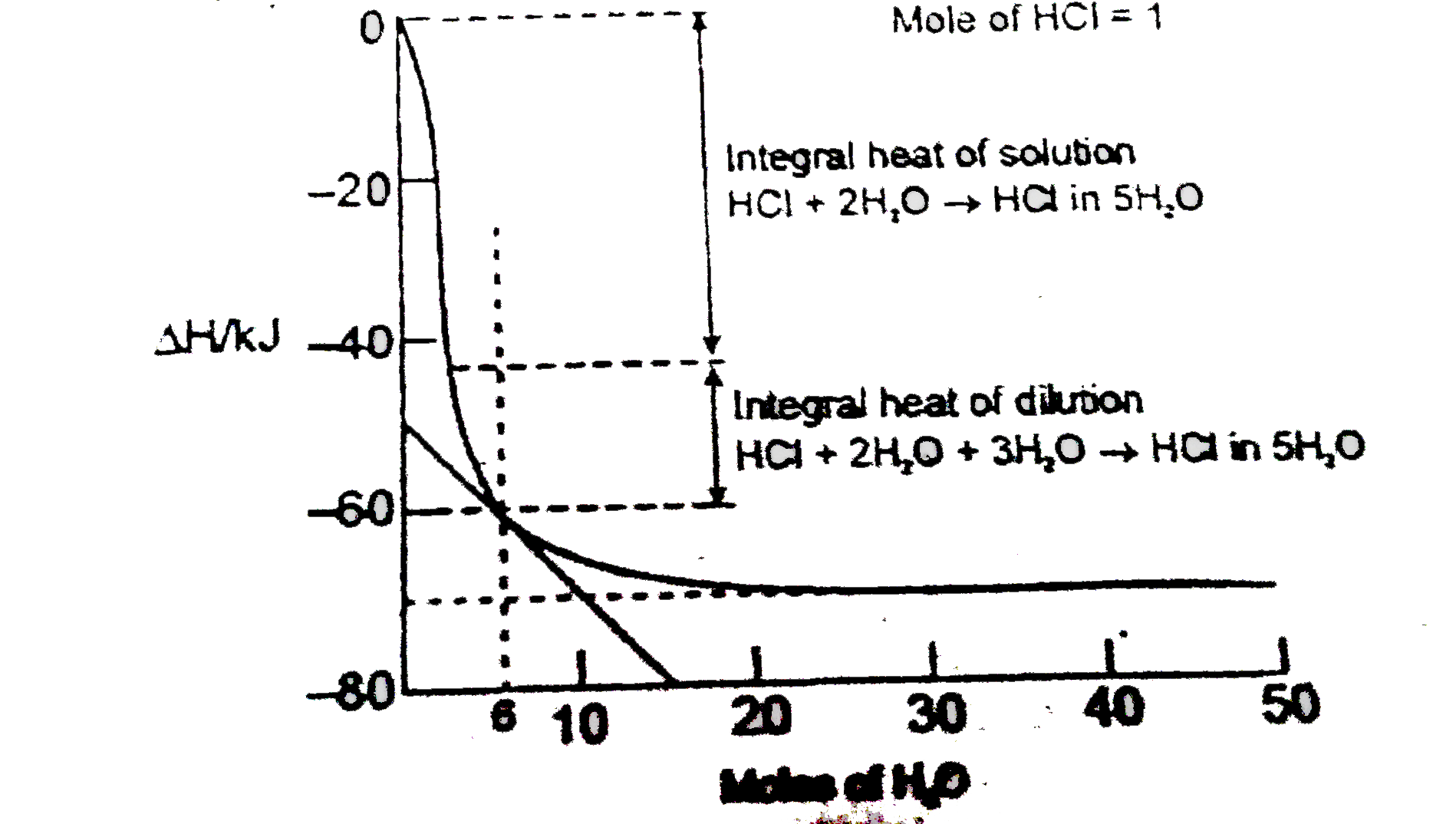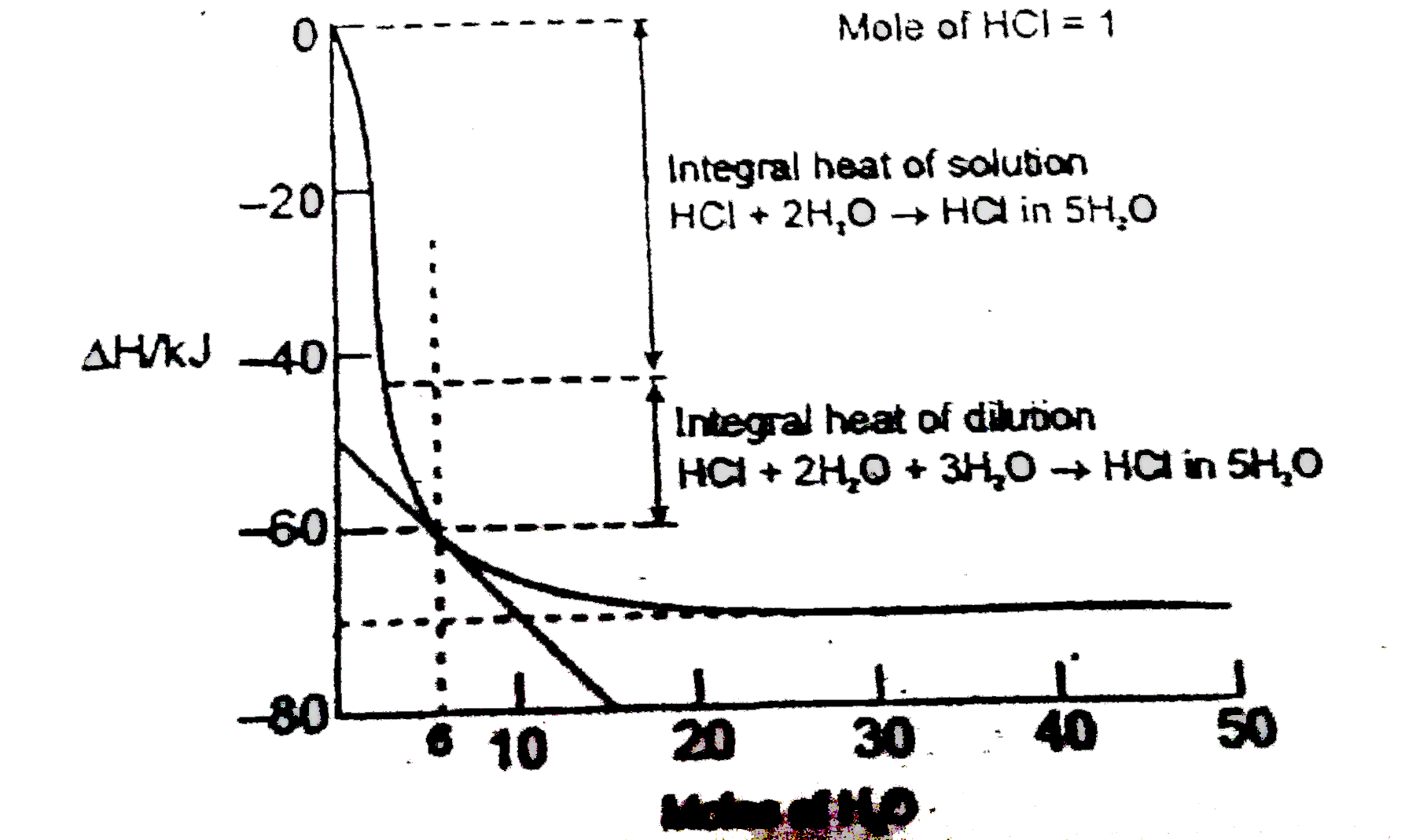Heat of solution is defined as
heat required to dissolved one mole in excess of water
heat evolved, when one molee is dissolved in excess of water
change in heat content of the system when one mole of the slute is dissolved in excess of water, so that further dilution of solutio does not bring any heat change.
heat required when one mole of solute is dissolved in limited quantity of water.
The correct Answer is:C
The change in heat content of the system when one mole of solute is dissolved completely in specified amount of solvent or water is called heat of solution. If solvent is in excess, the enthalpy change is called heat of solution at infinite dilution.
Topper's Solved these Questions
Similar Questions
Knowledge Check
- Question 1 - Select One
A solution is defined as a :
Anumber of eq/litre of solutionBnumber of eq/litre of solventCnumber of mole/kg of solventDnumber of mole/kg of solution - Question 2 - Select One
A solution is defined as a :
Ahomogeneous mixture of two or more substancesBheterogeneous mixture of two or more substancesChomogeneous mixture of liquid and soild components onlyDhomogeneous mixture consisting of water as one of the components - Question 3 - Select One
The solubility of a substance is defined as the amount of solute in grams -
APresent in 100g of the solventBPresent in 100g solutionCPresent in 100ml of the solutionDPresent in 1 litre of solution
Efficiency of heat engine is defined as the
View SolutionThe pH of solution(s) is (are) defined as the:
View SolutionThe enthalpy in the process HCl+nH2O→HCl in n moles of H2O Where n is the number of moles of water, is called the integral heat of solution.When n is large enough that continued addition of water does not increase the heat of solution, one simply writes
HCl+aq→HCl(aq)
The enthalpy for this process is the limiting value for the integral heat of solution.The enthalpy for the process
HCl in n moles of H2O→ HCl in (n+m) moles of H2O
is called the integral heat of dilution.These quantities are indicated in figure.Another quantity of interest is the differential heat of solution, defined as the slope of the enthalpy curve. The heats of solution depend on the composition of the solution as shown in the figure.

Integral heat of solution for the following step is :View SolutionThe enthalpy in the process HCl+nH2O→HCl in n moles of H2O Where n is the number of moles of water, is called the integral heat of solution.When n is large enough that continued addition of water does not increase the heat of solution, one simply writes
HCl+aq→HCl(aq)
The enthalpy for this process is the limiting value for the integral heat of solution.The enthalpy for the process
HCl in n moles of H2O→ HCl in (n+m) moles of H2O
is called the integral heat of dilution.These quantities are indicated in figure.Another quantity of interest is the differential heat of solution, defined as the slope of the enthalpy curve. The heats of solution depend on the composition of the solution as shown in the figure.

What is the approximate enthalpy change for the reaction HCl+aq→HCl(aq)View SolutionThe magnitude of heat of solution ….. On addition of solvent to solution
View Solution

